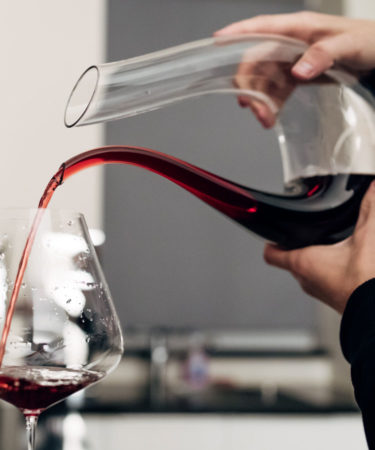Whenever you want. I am being serious. So many people out there make wine drinkers feel intimidated about decanting, offering what almost reads like a prescription: “Decant this young Barolo for no less than four hours, but no more than four hours and two seconds for the optimal drinking experience.” And to be completely honest, that’s bullsh*t.
The purpose of decanting a wine is to expose it to copious amounts of oxygen. But decanting a wine is all about the journey, so while time in a decanter may lead to one person’s optimal drinking experience, it might not lead to yours.
I like to pour a wine in a decanter and start sipping it immediately, following its evolution as it “opens” throughout the time I am enjoying it. Other people like to pour a wine in a decanter and walk away for 30 minutes or more, allowing the entire wine to evolve in the decanter before taking a sip. People especially do this with younger Bordeaux, Napa Cabernet, and Barolo to try to soften the tannins, since these can be very aggressive when they are young. If you like your tannins a bit aggressive, by all means, don’t decant! Also, any wine can be decanted — even bubbly, rosé, and white wine.
The only time I’d say you probably do want to decant a wine is when it’s old. That’s because older wines can have a lot of sediment in them, and decanting ensures that none of that sediment winds up in your glass. It isn’t bad for you — some people just don’t like to drink it. If you do decant that older wine, though, don’t wait too long to drink it. Older wines are delicate and can die very quickly the longer they are exposed to oxygen, which is the whole point of decanting in the first place. So, decanter or no decanter, drink up.
